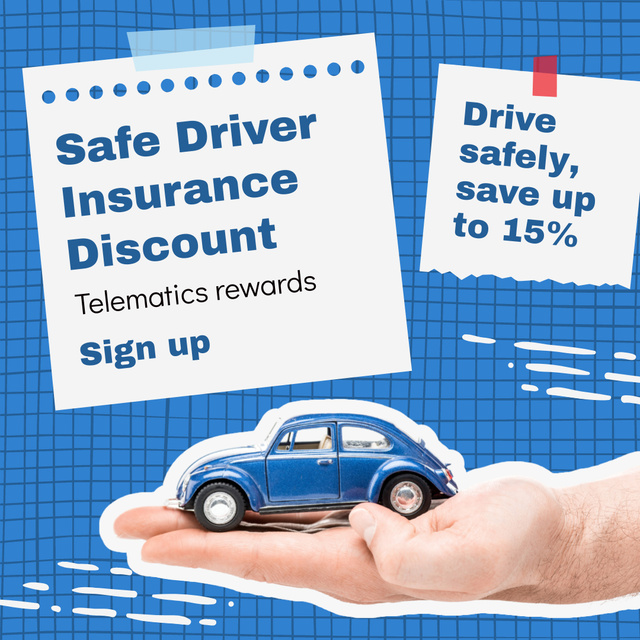What if your car insurance premium could be based on how safely you actually drive rather than just statistical assumptions about your demographic group?
Understanding Telematics Auto Insurance
Telematics auto insurance represents a revolutionary approach to auto insurance quotes by using technology to monitor actual driving behavior rather than relying solely on traditional rating factors. This usage-based insurance (UBI) model employs in-vehicle devices or smartphone apps to collect real-time data about how, when, and where you drive, potentially offering cheap car insurance options for safe drivers.
Modern telematics apps track driving habits through smartphone technology
Unlike traditional auto insurance policies that base premiums on factors like age, location, and vehicle type, telematics insurance focuses on actual driving behaviors. This personalized approach allows insurance companies to offer more accurate pricing and rewards for safe driving habits, creating a more equitable system where good drivers pay less for their coverage.
How Telematics Technology Works
Telematics insurance systems collect data through various technologies:
- Mobile Apps: Most insurers now offer smartphone applications that use GPS and accelerometer technology to monitor driving behavior.
- Plug-in Devices: Small devices that connect to your vehicle's OBD-II port to collect and transmit driving data.
- Built-in Systems: Some newer vehicles come with built-in telematics capabilities that can connect with insurance programs.
These systems track various driving metrics including:
- Mileage and time of day when driving occurs
- Speed and acceleration patterns
- Braking habits (hard vs. gentle braking)
- Cornering behavior
- Phone usage while driving
The data collected is typically transmitted to the insurance company via cellular networks, where algorithms analyze the information to determine driving scores and calculate potential discounts.
Safe Driving Rewards and Discounts
One of the most appealing aspects of telematics insurance is the potential for significant savings through safe driving rewards. Insurance companies typically offer:
- Initial Discounts: Many providers offer an immediate discount just for enrolling in a telematics program.
- Performance-Based Savings: Additional discounts based on your driving score, with the safest drivers receiving the largest reductions.
- Rewards Programs: Some insurers offer cash back, gift cards, or other incentives for consistently safe driving.
- Progressive Discounts: Programs that increase your discount over time as you demonstrate safe driving habits.

Safe driving habits can lead to significant insurance discounts and rewards
Studies show that drivers who participate in telematics programs can save anywhere from 10% to 40% on their premiums, with the most cautious drivers receiving the highest discounts. This creates a powerful incentive for improving driving habits and maintaining safe behaviors on the road.
Applications for Business Insurance
Telematics technology isn't just for individual drivers—it's also transforming business insurance for companies with vehicle fleets. Commercial telematics solutions offer:
- Fleet management tools to monitor multiple vehicles
- Detailed reporting on driver performance and efficiency
- Reduced insurance premiums for businesses with safe driving records
- Improved vehicle maintenance scheduling based on actual usage
- Enhanced safety protocols and driver training opportunities
For businesses, telematics can provide significant cost savings beyond insurance discounts, including reduced fuel consumption, lower maintenance costs, and improved overall fleet efficiency.
Privacy Considerations
While telematics insurance offers many benefits, it's important to understand the privacy implications:
- Data Collection: Insurers collect detailed information about your driving habits and locations.
- Data Usage: This information is used to calculate discounts and may be shared with third parties in certain circumstances.
- Opt-Out Options: Most programs allow you to opt out of data sharing for marketing purposes.
- Transparency: Reputable insurers clearly explain what data they collect and how it's used.
When considering a telematics program, carefully review the privacy policy and understand how your data will be used and protected. Many drivers find that the potential savings outweigh privacy concerns, especially when they have control over what data is shared.
Conclusion: The Future of Auto Insurance
Telematics auto insurance represents a significant shift in how auto insurance quotes are calculated and how premiums are determined. By rewarding safe driving behaviors with tangible savings, these programs encourage better driving habits while offering more personalized and potentially cheap car insurance options for responsible drivers.
As technology continues to evolve, telematics systems will likely become even more sophisticated, offering more detailed feedback and potentially greater rewards for safe driving. For both individual drivers and businesses with vehicle fleets, embracing telematics insurance can lead to significant cost savings while promoting safer roads for everyone.

